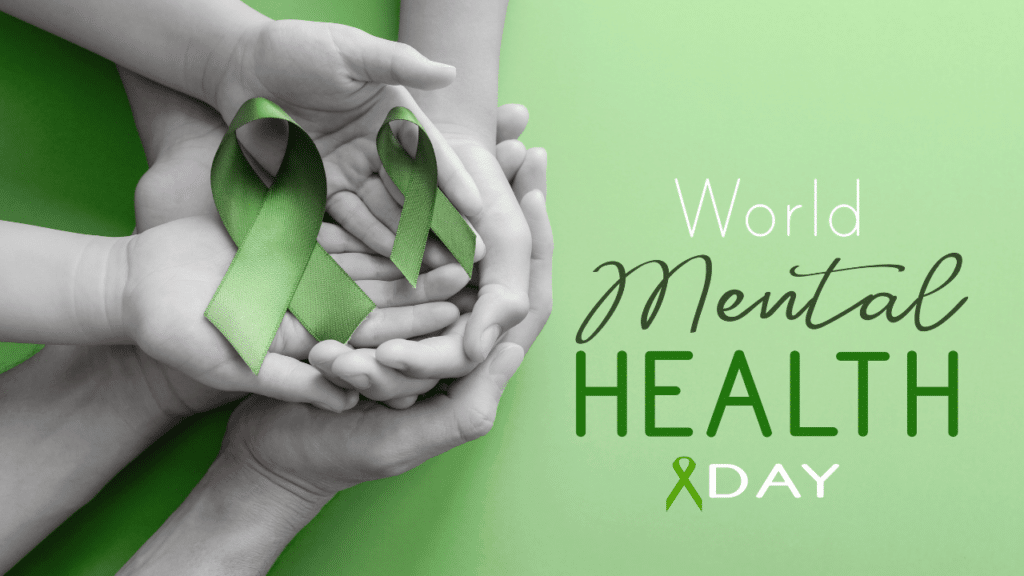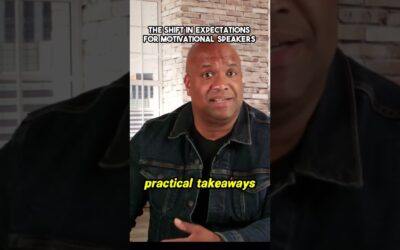
Mental health. There has been an increase in the number of media conversations on the topic since the start of 2020. The pandemic brought an increased awareness and acceptance that people are struggling with anxiety, depression, and suicide as a result of our current situation. However, the mental health conversation shouldn’t stop there.
October is a month full of “awareness days” for mental health:
- Mental Illness Awareness Week – Currently happening right now. (October 3 – 9)
- World Mental Health Day – October 10th
- National Domestic Violence Awareness Month
- Depression Awareness Month
- National Pregnancy and Infant Loss Awareness Month
- National ADD/ADHD Awareness Month
- National Bullying Prevention Month
- Antidepressant Death Awareness Month
If reading through the list of these causes is making you anxious, you’re not alone. Seeing all of these important causes listed together is enough to overwhelm anyone. There are so many important changes that we want to see happen in our world. There are so many good causes that need our attention.
But don’t feel guilty or ashamed if you feel like it’s all just too much.
Compassion fatigue is real. The news has bombarded us over the past 18 months with emotional topics that the world is demanding we pay attention to. Watch the news for a few hours and if you weren’t feeling stressed and anxious when you started, you probably will by the time you finally turn away to something else.
We need awareness of mental health challenges
Don’t get me wrong, there are many organizations doing important work to increase awareness about real-life challenges that people around you are facing on a daily basis. The world needs us to take a stand and work to make a difference.
But rest assured that the weight of the world does not need to be on your back. You cannot effectively take up every cause. You won’t be an expert in every area. Even mental health professionals like psychiatrists and psychologists have a tendency to specialize in a few different areas.
A basic understanding of mental health disorders
I think it’s important everyone has a basic understanding of the reality of mental illness. This is important for breaking the myths that are floating around society and hurting people, including things like:
- People with mental health disorders are dangerous.
- Mental health problems aren’t common. Or, I don’t know anyone with a mental health disorder.
- My problems aren’t serious enough to warrant getting help.
- Going to therapy means you are weak or “crazy”.
- We shouldn’t talk about suicide or we might cause it to happen more.
Those are just a few of the ideas and myths that many in society believe. Spreading mental health awareness and putting an end to these myths and mental health stigma is necessary to create the change we desperately need.
Changing our perspectives instead of becoming experts
The campaigns that run for awareness days might leave you feeling like you need to be an expert in each area, but that’s not what we need. What the world really needs is for each person to take responsibility to challenge the way they think about situations.
We need people to replace the urge to speak their opinions with the urge to listen to someone else’s experience. We need people to genuinely care about those around them and take an interest in their lives.
The numbers around these important issues are startling when you see them in writing. Here are a few examples:
- “1 in 4 women and 1 in 9 men experience severe intimate partner physical violence, intimate partner contact sexual violence, and/or intimate partner stalking with impacts such as injury, fearfulness, post-traumatic stress disorder, use of victim services, contraction of sexually transmitted diseases, etc.” (National Coalition Against Domestic Violence)
- “On average, there are 130 suicides per day.” (American Foundation for Suicide Prevention)
- “1 in 5 U.S. adults experience mental illness each year.” (National Alliance on Mental Illness)
- “An estimated 31.1% of U.S. adults experience any anxiety disorder at some time in their lives.” (National Institute for Mental Health)
We could look at statistics all day long, but all you really need to do is acknowledge and accept one little fact: Even if you’re not struggling with your mental health at the moment, people all around you are.
As a society, we need to stop thinking we know everything and start listening to and supporting one another. Mental illness is real and you cross paths with people every single day who are living with mental health disorders or mental health challenges. Learning about the resources available is a great way to support and care for those around you.
Mental health resources everyone should know about
The theme of World Mental Health Day 2021 is “Mental health care for all: let’s make it a reality”. There is a large gap between the need for mental health services and those who are accessing the help they need. There are many different reasons for this, including things like a lack of access, lack of resources, and stigma.
While the mental health industry isn’t where we all want it to be yet, there are many organizations working hard to provide the resources, tools, and access to help that people need.
Here are some of the available mental health resources and tools:
- Free Online Mental Health Screenings from Mental Health America
- Affordable option for online therapy
- Mental Health First Aid from National Council for Mental Wellbeing
- Mental Health Services Guide (Plus Free Services)
- Where to Find Mental Health Help IMMEDIATELY / A.S.A.P.
If you’re struggling with your mental health, I encourage you to speak with a therapist and take advantage of the tools and resources above. There are many forms of treatment available and as with any health concern, it’s best to address it sooner rather than later.
While there are many DIY strategies to boost your mental health and emotional wellness, they are not a replacement for therapy with an experienced and licensed professional.
So, while I’m going to share a few tips around taking a day off for your mental health, please don’t think I’m sharing this as a replacement for getting professional help. The following is helpful to know and do in addition to speaking with a therapist.
Practice self-care daily
Self-care is the simple act of taking care of yourself. Self-care activities are things that help you to address your physical, emotional, and mental health needs. When we stay on top of good self-care habits, it makes it easier for us to manage the stressful situations that we may come across on a daily basis.
Self-care also helps us to stay in better control of our emotional responses. When we ignore basic self-care activities, we feel it both physically and mentally.
I have created many resources and videos over the years on the topic of self-care. You can access them here:
- Ultimate Guide to Self-Care
- IGNITE Mini-Course
- Self-Care Resources for Mental Health and Emotional Wellness
- Mike Veny YouTube Channel full of mental health tips
How to take a mental health day
If you’re feeling burnout, stressed, and exhausted, you may need to take a mental health day off work.
Signs that your mental health is suffering at work:
- Feeling exhausted, rundown, and having low energy
- Feeling irritable (or more irritable than normal)
- Constantly overwhelmed
- Forgetting things or making mistakes you wouldn’t normally make
If you are experiencing these signs, it’s time to take a break. Rest and relaxation can go a long way in helping you get back to feeling like yourself.
A tip for employers about workplace mental health
A common issue that employees have about taking a day off for their mental health is feeling guilty. They know they are placing more work on others or they’re worried they’ll be judged for not coming in. If you’re an employer, I challenge you to foster a culture in your workplace that prioritizes the mental health and emotional wellbeing of employees. When you help employees feel their best—physically and mentally—they are happier and more productive.
Tips for asking to take a mental health day off
The first thing you need to know is that you should not feel guilty about taking a day off for your mental health. If you had a fever, would you feel guilty for not coming to work? Absolutely not. It needs to be the same with your mental health.
If you’re able to preplan for taking a mental health day off, do your best to work out a plan with someone on your team to take care of your commitments while you’re off. This will make it easier on the entire team and help you approach your manager with confidence and a plan in place.
It’s also helpful to practice saying you’re taking a day off before you approach your boss. It can be as simple as, “I need to take off next Tuesday for personal reasons.” You don’t need to apologize while you do it. You’re being proactive in taking care of your mental health so you can be healthy and do your best work in life.
What to do during a mental health day
This is the most important part of taking a day off for your mental health. You need to choose to do things that will be good for you in the long run. Collapsing on the couch and binging on Netflix all day might sound like the perfect way to spend your day, but that’s an escape activity and not a form of self-care.
You need to have rules set for your mental health day. This can include restricting your access to social media, how long you can watch television, or when you’re going to take phone calls. Remember, this is a day to rest.
Do activities that rejuvenate you. Go for a walk. Get out in nature. Hydrate. Stretch. Journal.
If you don’t spend the day doing self-care activities that help you feel better, all you’ve done is taken a day off. You haven’t improved your situation in any way. This is why it’s really important to be intentional with the rules and structure you set for the day.
3 questions to inventory your mental health
If this whole “mental health” idea is still new to you, you may find that you’re struggling to really process how you feel and the state of your mental health. You may have been living for years feeling exhausted, burnout, and stressed without realizing that it’s not normal or healthy to feel like that all the time.
There are three questions you can ask yourself on a daily basis to inventory your emotional wellness and mental health. Taking a moment to think through your answers or write them out is a good starting place.
- What am I feeling right now?
- Where is it located?
- What do I need right now?
This really gives you a barometer of what’s going on inside you mentally and emotionally. If you do this often enough, it might even help you stay on top of your mental health so you can avoid reaching the place of needing to take a mental health day off work.
Mental health matters
This is truly the overarching message that we need to spread around the world. Mental health is a part of your overall health and wellness. There are many different types of disorders and challenges that people are living with.
There are many different treatment options available based on your specific needs and situation. If you’re struggling, don’t wait to reach out for help. No issue is too big. No issue is too small.
If you’re just burned out and exhausted, use the tips provided above to take a mental health day to rest and recharge. If you know someone in your life who is struggling, help them access the resources they need for help. And if you’re an employer, provide access to the resources and free tools that your employees may need.
Remember, unlike many physical illnesses and injuries, we can’t see mental health challenges. The people around you may be smiling and acting like everything is okay in their lives, but the mental health statistics tell a different story.



